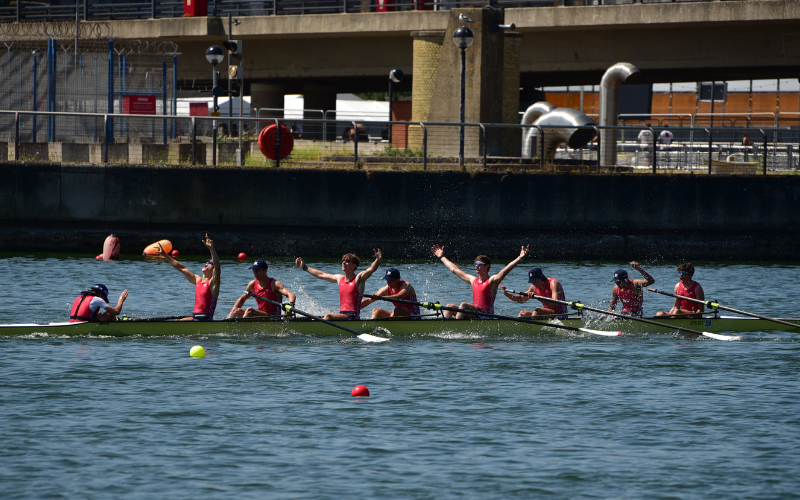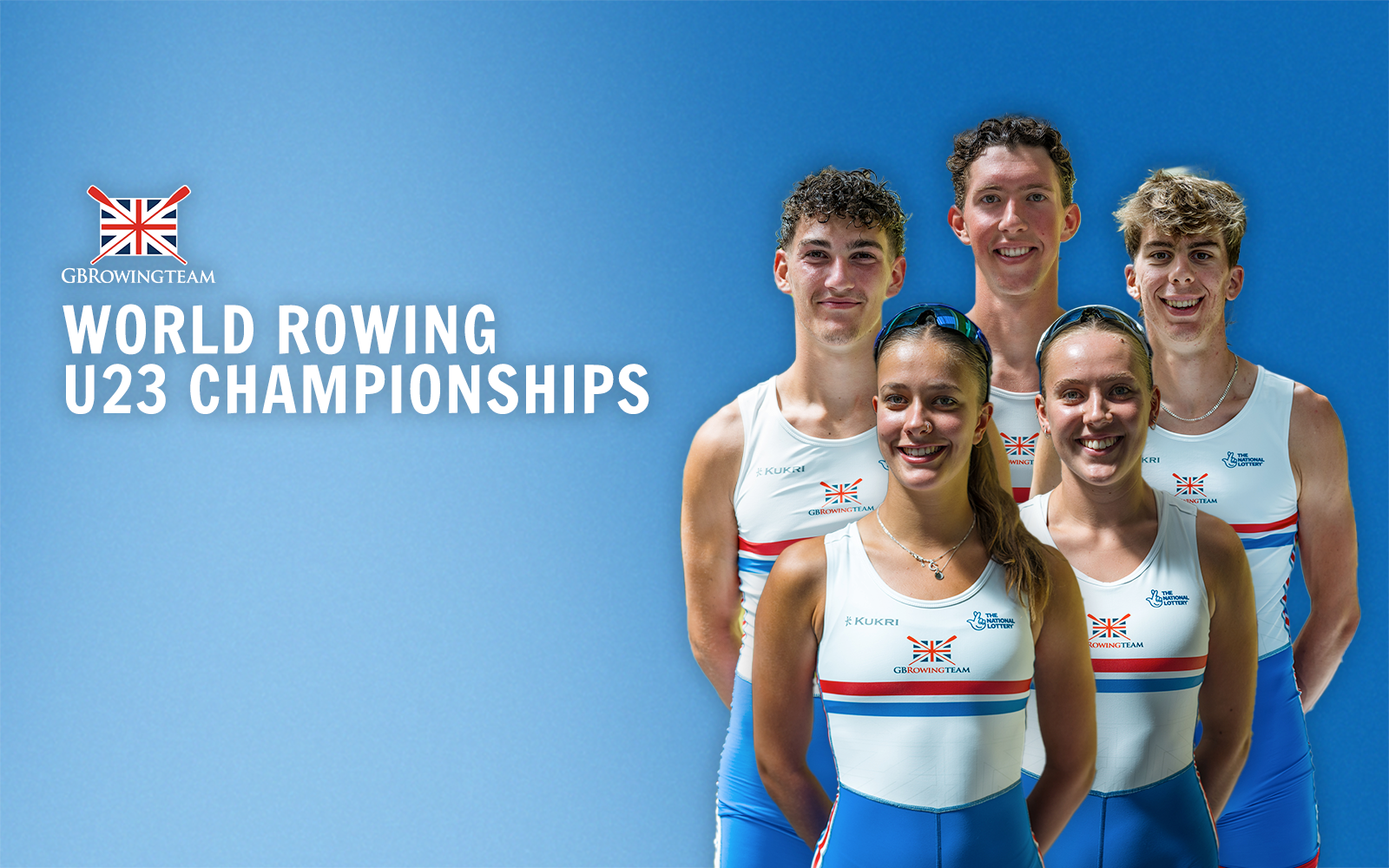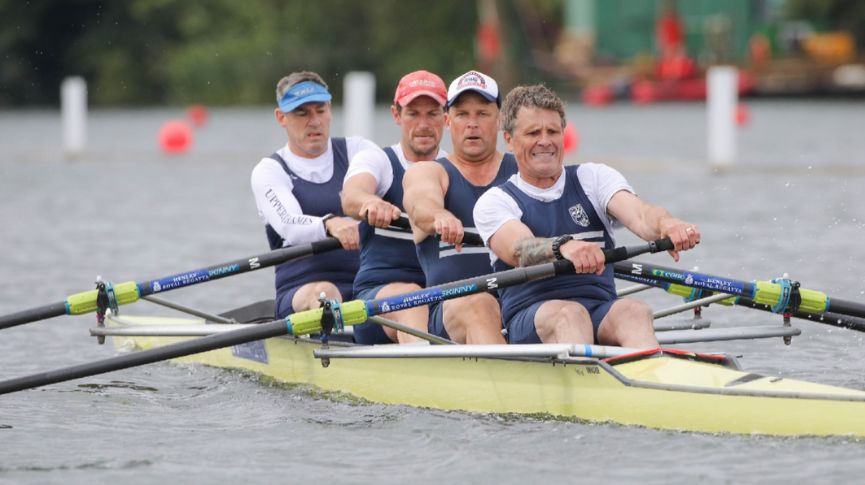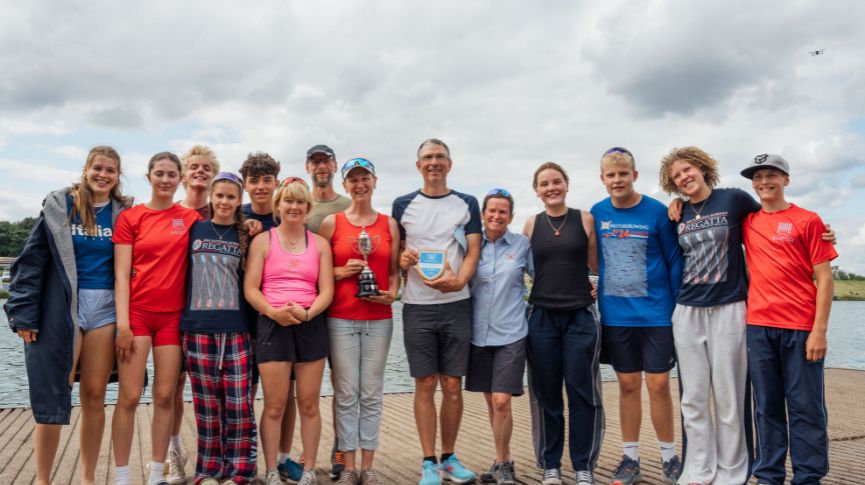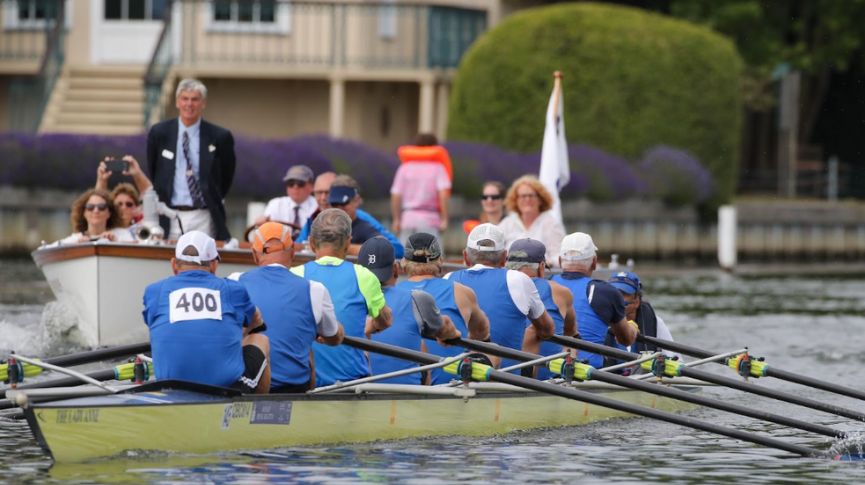Cantabs rowing coach walks the British coastline for BBC Children in Need
Chris Howard is ten weeks into a gruelling 11,000-mile walk around Britain’s coastline to inspire people to push their limits and help others. Rob Eyton-Jones reports
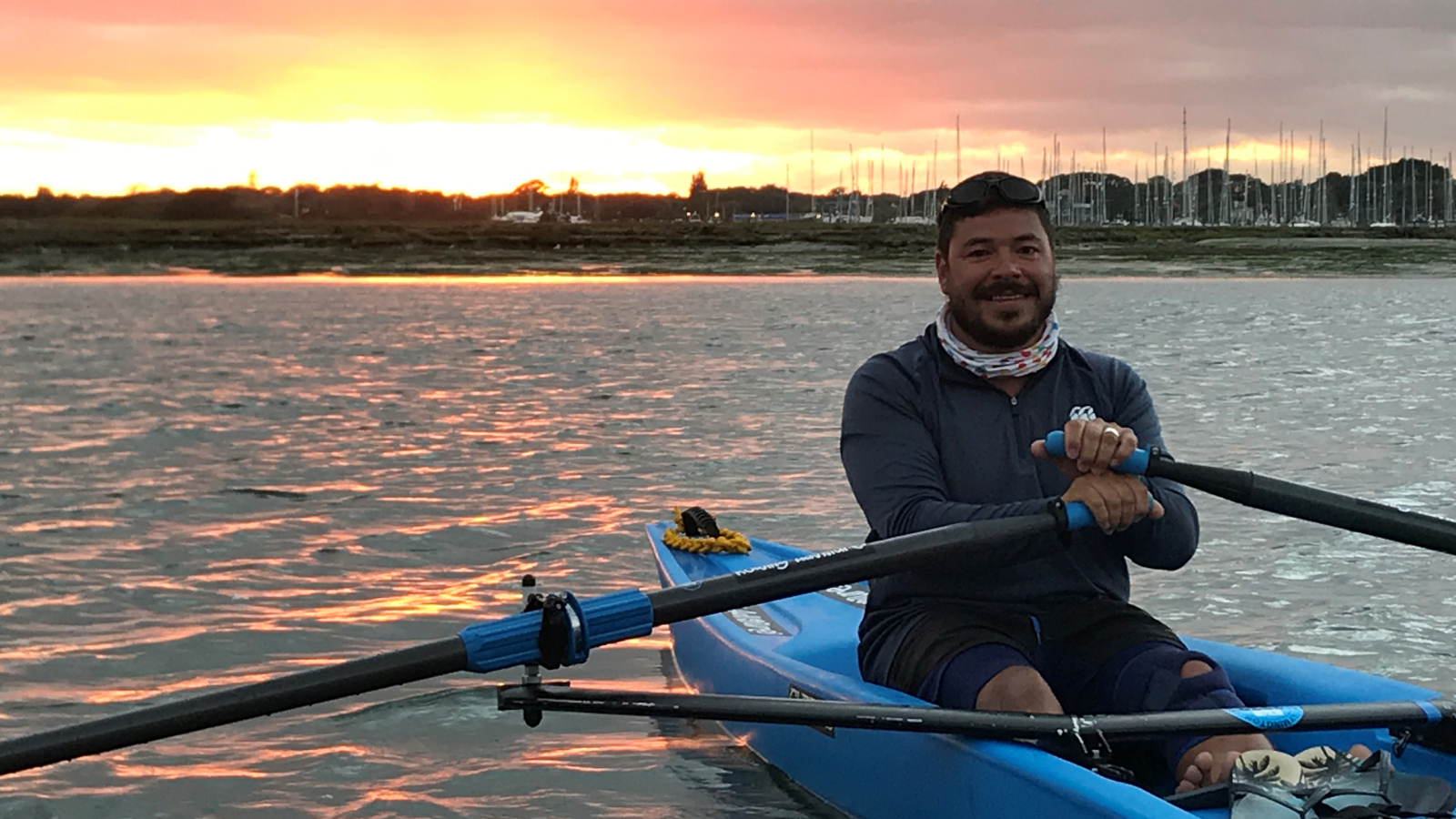
Chris fits in some rowing (c) Rowing Adventures
Cantabrigian Rowing Club coach, Chris Howard, started his coastline challenge in July. The Cambridge 35-year-old struck upon the idea during lockdown – the moment restrictions lifted he headed off before he had time to talk himself out of it.
No special preparations were involved. No budget was amassed to see him through what he anticipates will be a year of rough travel and living, camping in a sleeping bivi bag and resorting to foraging when he can’t buy food.
Nor did he spend time fine-tuning physically for an expedition which includes the minimum of four long days a week each up to 30 miles, up to 18 miles on the other three days and barely any rest days.
As a rowing coach I’ve realised that people rely too heavily on the fact that their physical training will get them through
Chris is relying on his ‘above average’ physical fitness, a certain tenacity and the capacity to consistently push himself hard. Having taken on a lifetime of challenges, including rowing the Atlantic unaided with his best friend Tom Dignum in 2011, his opinion is that fitness will only get you so far. Beyond that it’s all in the mind.
“As a rowing coach I’ve realised that people rely too heavily on the fact that their physical training will get them through,” said Chris, who is using the trip to raise funds for BBC Children in Need.
“But if you are in a race and, with 500m to go, you might think you’re completely spent but you’ve probably still got lots left in the tank.
They even beat our club president’s boat in the last race before lockdown, which really got everyone paying attention
“From a coach perspective I’m always telling my guys about having that conversation in your head because you’ve got to find a way to turn things around.”
Digging deeper is of course the current challenge for Chris who set off clockwise from Norfolk in July and reached Plymouth two weeks ago. Few are prepared to live with the discomfort of relentless hardship to achieve a major goal, but Chris believes it’s all about extending your current threshold.
“If you’ve pushed yourself then that becomes your new benchmark; it changes your perspective and you know nothing else can be worse than that,” he continued.
“I think that a lot of athletes have never pushed themselves beyond that limit of doing a 5km or even a 2km race. They’re capable of so much more.”
I’ve realised people are genuinely kind and it’s the people that make the places I’m seeing
Chris’s own survival instinct began as a kid, being regularly trampled on the rugby pitch and pummelled in the karate class.
An urge to win led Chris to being British junior karate champion. When he rowed the Atlantic in 2011 – with no previous experience as a rower – the pair chose to do the journey unsupported, adding a further layer of psychological pressure, an adventure which involved its share of life and death decisions.
“It’s something you’ve got to work out yourself from literally being on the bones of your arse, having nowhere to go and no other option than to keep pushing yourself,” Chris explained.
Chris has, however, managed to instil the ‘never say die’ mindset into at least one crew he works with at Cantabrigian, one of the largest town rowing clubs in Cambridge.
A men’s masters crew wanted to compete seriously and were willing to put all the hours into training, but nobody was prepared to take them on – until Chris decided to. Five years on the results have been remarkable.
“They’ve gone from putting in a 2km time of around nine minutes in individual times to below 7:30,” said Chris, who improved them further during lockdown by erg coaching on Zoom.
“They even beat our club president’s boat in the last race before lockdown, which really got everyone paying attention.”
Teamwork obviously played a big part in the crew’s success, as it did when Chris rowed the Atlantic with Tom.
Last week I met a guy on the beach who had heard I was walking along that stretch and he waited for me all day
In comparison to the hostile Atlantic, walking a benign coastline might appear easier. But Chris believes it is harder, not least because he’s on his own, and he leaves a wife and young family back home, not knowing when he will see them next.
Even so, he still found the energy to have a row after a long day’s walk to Lymington four weeks ago, thanks to Rowing Adventures offering him a boat and accommodation for the night!
He explains though that the first three weeks of walking were grim, sticking to a rigid daily plan detached from people and places left him struggling mentally. But speaking to his wife on the phone encouraged him to enjoy the places he was visiting and, more importantly, make connections with the people. It sounded simple and obvious, but it was the breakthrough he needed.
“If I hadn’t had that conversation, I’d probably still be driving myself on and not enjoying a single day,” explains Chris.
“Since then I’ve realised people are genuinely kind and it’s the people that make the places I’m seeing.
“Last week I met a guy on the beach who had heard I was walking along that stretch and he waited for me all day. He had bought me a bag of fruit, a bottle of water and cup of tea.
“Another night I was camping on a remote hill when a guy and his dog came along. He told me to pack up and come back to his house. They didn’t have a spare room, but let me sleep on the floor and his wife made me an amazing dinner.
“Both times it was totally random and out of the blue. These random acts of kindness are making a massive difference.”
You can help Chris in a variety of ways: follow him on social media at Chris the Coast Walker; sponsor him, buy him a meal, or a cup of coffee via his website here; or simply walk a few miles with him when he’s on your stretch of the coastline.


